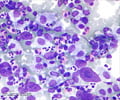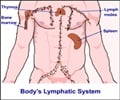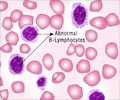Treatment for Chronic Lymphocytic Leukemia
Early stage CLL may take years to evolve. Doctors may recommend watchful waiting for some patients, depending on the disease stage.
The best approach for some patients may be to closely monitor their blood count regularly and to check for possible manifestation of a symptom, rather than undergoing any treatment.
The following are the basic tenets involved in CLL treatment-
- Treatment of the newly diagnosed
- Treatment of those with a progressive disease
- Treatment of those whose disease is resistant to standard treatments
- Treatment of complications / side-effects
Some of the popular treatment modes for CLL are -
- Chemotherapy
Initial CLL treatments depends on
- the exact diagnosis
- the progression of the disease
- the preference / experience of the health-care practitioner
There are dozens of drugs used for CLL therapy, and considerable research activity is taking place analysing them individually and also in combination with each other.
This treatment aims to destroy the abnormal cells present in the blood and the bone marrow, in order to facilitate the normal cells to multiply.
Corticosteroids, purine analogs, anti-tumor antibiotics, monoclonal antibodies, growth factors and cytokines are employed in the treatment of CLL.
- Monoclonal antibody therapy
Monoclonal antibodies are artificial proteins that attack specific proteins on the malignant blood cells, causing them to die. Besides this function they also alert the body's immune system to eliminate other leukemic cells.
- Surgery
Surgery may be required, sometimes, to biopsy the lymph node tissue or to remove the spleen, if it is enlarged.
- Bone Marrow Transplant
Patients who do not respond to or benefit from other treatment options are ideal candidates for bone marrow transplants.
The first step towards a transplant is by treating the leukemia with chemo- and/or radio- therapy to suppress the immune system. Then healthy marrow cells, from a matching donor, are injected into the patient intravenously. These normal cells multiply and re-populate within the patient's bone marrow. The patient also benefits from the immune system components, found in the donor's marrow cells, which attack the leukemic cells by treating them like infection.











Can hyperbaric oxygen therapy be used to treat CLL ?? My Dad is 92 and mild diabetic. He was holding his own until a lymph gland swelled up under his arm; they did radiation; the tumor burst and is now an open wound under his arm. They are doing wound care; three times per week; but it is extremely painful for him. I know that the Hyperbaric treatments are beneficial for numerous wounds and ailments. Could it possibly be beneficial to heal this open would under his arm ?
My dad has been just diagnosed with cll. He is 65 yrs old, a smoker for about 50yrs. now. He said he has not felt right for about 4-5yrs. said he knew something was wrong. His white blood cell count is 280,000 and still fighting shingles. What is his prognosis?
I'm 48 years old and have had 7 heart attacks in the last 14 years along with 12 stents. Recently I was diagnosed with stage 4 CLL. Can you give me any ideas on life expectancy?
my mother is diagnosed with CLL, 63 is the count of platelets and 112400 of wbc what are te chances
Is CLL hereditary?
Yes, my doctor told me it was. I have CLL and my brother and sister has it.